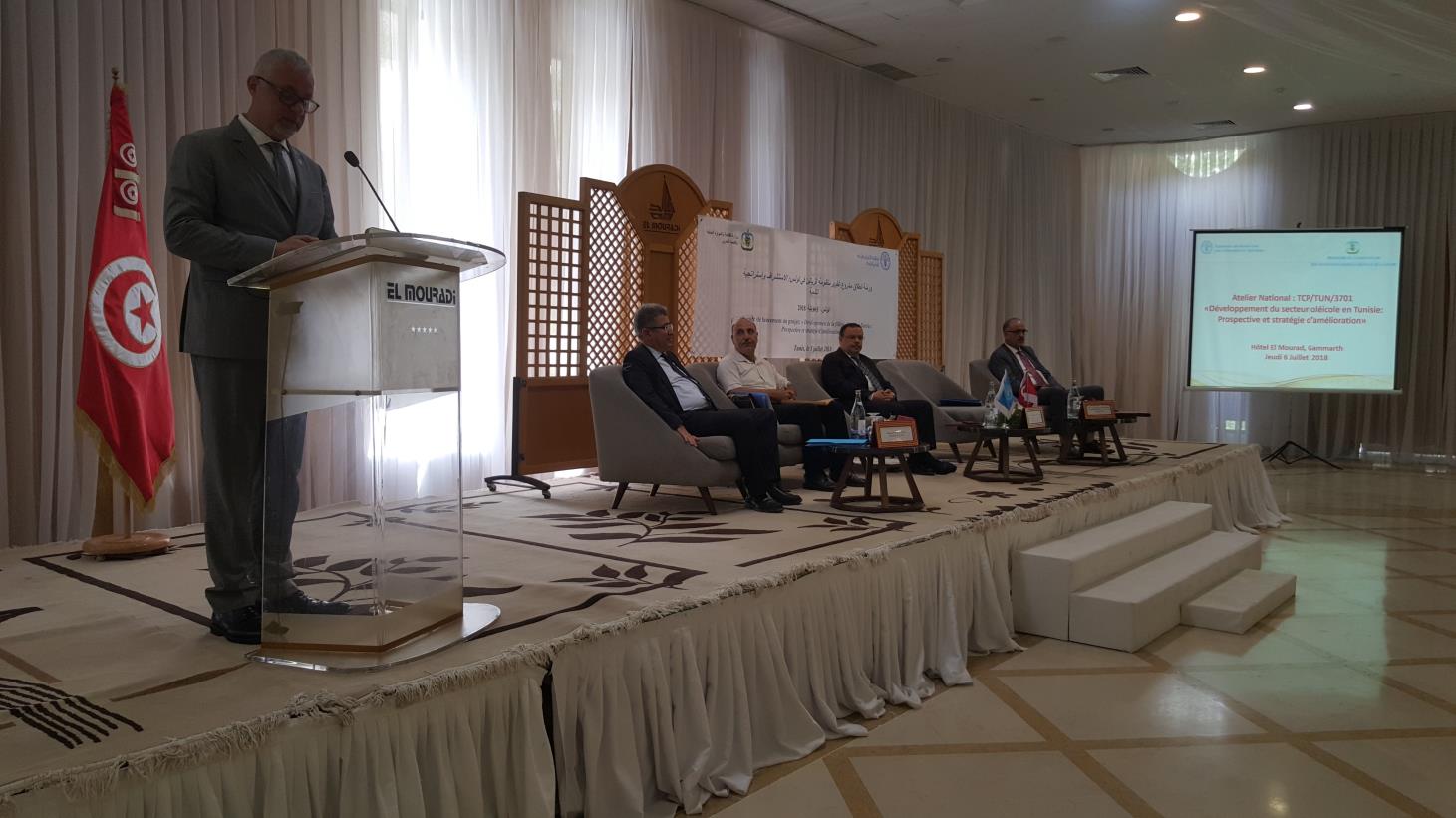FAO supports the development of a foresight and strategy for improving the olive sector by 2030

Tunis - A new FAO technical cooperation project for Tunisia was officially launched during a workshop inaugurated by Mr Samir Taïeb, Minister of Agriculture, Water Resources and Fisheries, in the presence of the various actors of the sector, the relevant ministries, professional groups, academics and experts, as well as civil society. With a budget of 300,000 USD, this project will contribute to Sustainable Development Goal 2 (SDG 2) which aims to ensure food security, improve nutrition and promote sustainable agriculture, specifically the increase of production and improvement of nutrition through the quality of olive oil.
Through this project, FAO will support the Tunisian government to develop a "forward-looking olive oil strategy" by 2030, according to a sector approach that includes the continuum of production to the market and all links in the value chain, including derivatives. Potential synergies between the various actors in the sector will be studied and developed. An olive expansion and rejuvenation plan that takes into account the agro-ecological potential of the areas and their capacity to adapt to climate change will be implemented. An investment scheme for the 2020-2025 sector will also be developed. Finally, a training center, administered by the National Office of Oil (ONH) will be created to improve the quality of olive oil and strengthen national capacities through training and extension in the olive sector.
In his address, Mr Michael Hage, FAO Representative in Tunisia and Coordinator of the Office for North Africa, noted that this project reinforces cooperation with Tunisia in the olive sector, given its strategic importance for the country. On this occasion, he recalled the analysis study of the sector developed by the FAO and the EBRD in 2015, which highlights the efforts required to enable Tunisia to better respond to market demand and to improve the market supply of olive oil for the long-term sustainability of the sector. This project will assist in the implementation of the recommendations of this study, particularly in terms of adopting a proactive, participatory and action-based approach to development, giving olive products priority and importance that they deserve in the new strategic vision and the future development plans, as well as the implementation of new mechanisms and tools of intervention making it possible to face the current and future stakes of the sector.
In Tunisia, the olive sector contributes to the achievement of national objectives of economic growth, food security, job creation, increased export earnings and the preservation and development of natural resources. It is characterized by the great diversity of the structures of production, transformation, distribution and consumption that compose it. In his speech, Mr. Samir Taieb affirmed that "profound and fundamental changes are to be made in the development strategies of the sector, as well as methodologies, in order to adopt a more coherent policy and in line with the requirements of the actors and stakeholders, the diversity of their production units, their methods of work, their results, the characteristics of the regions and their benefits, in order to harmonize the objectives and mechanisms that are at the heart of the agricultural sector itself and the policies adopted in other sectors relevant to the sector.”
The Tunisian government is making significant efforts to restructure and modernize the sector, increase the area devoted to growing olive trees and improve the quality of olive oil. Tunisia ranks second in the world in terms of areas planted with olive trees after Spain with nearly 16% of the world olive area. It is the fourth largest producer after Spain, Italy and Greece and the third largest exporter after Spain and Italy.
Contact
Contact
Faten Aouadi Communication Officer
Bureau sous régional pour l’Afrique du Nord
[email protected]
00 (216) 70 145 700 ext. : 323
00 (216) 98 703 026
